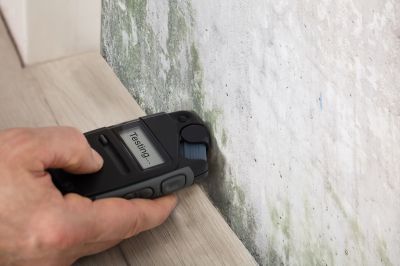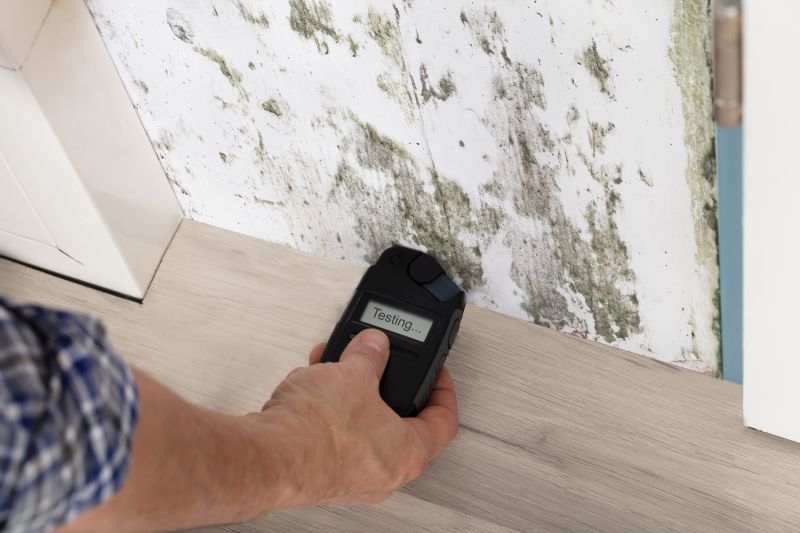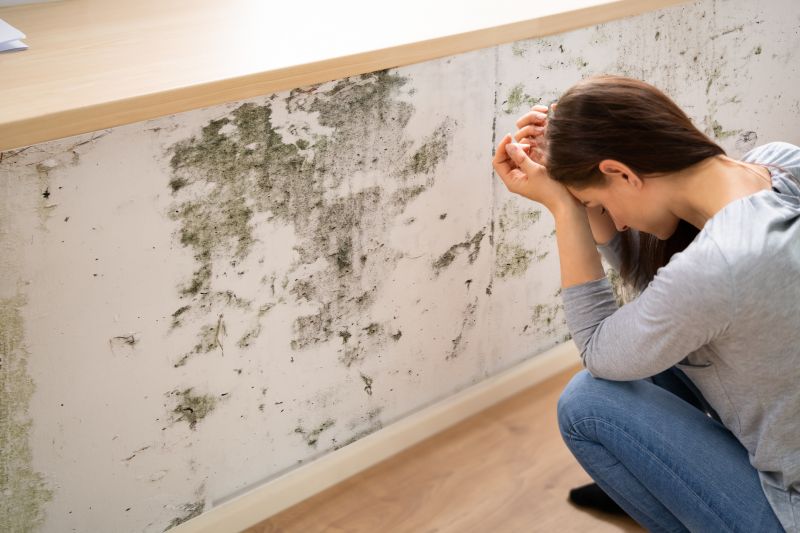Get Mold Testing in Charlotte, NC
Mold testing services for Charlotte property owners identify hidden mold issues in homes and businesses, helping with water damage, leaks, or suspected indoor mold growth.
If you’re a property owner in Charlotte, NC, considering a mold inspection, you’ve come to the right place. Mold testing services can help identify hidden issues that may impact indoor air quality, property value, or health. Whether you’re preparing a property for sale, addressing concerns after water damage, or simply want peace of mind about your living or working space, understanding the presence of mold is a practical step in maintaining a safe environment. Exploring options for professional testing can ensure you gather accurate information before planning any necessary remediation or improvements.
Many property owners in Charlotte turn to local contractors for mold testing to get clear insights about potential issues. Comparing different service providers allows you to find qualified professionals who understand the specific challenges of the area’s climate and building types. Keep reading to learn more about how mold testing works and what to consider when choosing a provider, so you can make informed decisions for your property’s health and safety.
- Residential Mold Testing - homeowners in neighborhoods like Ballantyne or Steele Creek may need testing to identify hidden mold issues after water damage or leaks.
- Commercial Mold Testing - businesses in office buildings or retail spaces in Charlotte, NC might require testing to ensure a healthy environment for employees and customers.
- Post-Remediation Mold Testing - property owners who have had mold removal services completed want to verify that the area is safe and free of mold spores.
- Air Quality Testing - individuals experiencing allergy symptoms or respiratory issues in areas like SouthPark or Plaza Midwood may seek testing to assess indoor air quality.
- Water Damage Mold Inspection - residents dealing with flooding or plumbing leaks in neighborhoods such as Dilworth may need mold assessments to prevent ongoing health risks.



Mold testing services involve inspecting indoor spaces to identify the presence of mold spores and determine their types and concentrations. The process typically includes collecting air or surface samples, which are then analyzed to assess whether mold levels are within normal ranges or suggest a problem. This service helps homeowners understand if mold is growing in their property, especially when there are visible signs like stains, musty odors, or unexplained health issues. Accurate testing provides essential information to guide appropriate remediation efforts and ensure a healthier living environment.
These services are particularly useful in addressing problems such as persistent allergies, respiratory issues, or unexplained illnesses that may be linked to mold exposure. They can also help identify hidden mold growth behind walls, under flooring, or in less accessible areas, which might not be visible during a routine inspection. Mold testing is often recommended after water damage, flooding, or leaks, as these situations create ideal conditions for mold to develop. By pinpointing the source and extent of mold contamination, homeowners can take targeted action to resolve the issue effectively.
Properties that commonly utilize mold testing include residential homes, especially older houses or those with recent water damage. Apartments and multi-family buildings may also benefit from testing to ensure shared spaces remain safe. Commercial properties, such as offices, retail stores, or rental units, often use mold testing services to maintain a safe environment for employees and customers. Additionally, property managers and landlords may seek testing when tenants report health concerns or when preparing a property for new occupants. Overall, any property experiencing signs of moisture problems or suspect mold growth can benefit from professional testing.
When considering mold testing, homeowners should think about situations where mold might be hidden or difficult to detect visually. If there is a persistent musty smell, visible staining, or if someone in the household has ongoing allergy symptoms, testing can help clarify the source. It is also advisable after water-related incidents, such as leaks or flooding, to confirm whether mold has begun to grow and to determine the scope of any contamination. Local contractors specializing in mold testing are equipped to evaluate both residential and commercial properties, providing clear results to inform necessary steps toward remediation and ensuring a healthier indoor environment.
The overview below groups typical Mold Testing projects into broad ranges so you can see how smaller, mid-sized, and larger jobs often compare in Charlotte, NC.
In many markets, a large share of routine jobs stays in the lower and middle ranges, while only a smaller percentage of projects moves into the highest bands when the work is more complex or site conditions are harder than average.
Smaller Mold Testing Jobs - typical costs range from $250 to $600 for routine inspections of small areas. Many local contractors handle these standard tests within this range, making it a common expense for homeowners. Larger or more detailed assessments may increase the price slightly.
Moderate-Size Projects - costs usually fall between $600 and $1,200 when testing larger spaces or multiple areas within a home. These projects are often more comprehensive but remain within a predictable budget for most service providers in Charlotte, NC.
Extensive or Complex Testing - larger, more complex mold assessments can reach $1,200 to $3,000 or more. Fewer projects fall into this tier, typically involving detailed analysis or remediation planning for significant mold issues.
Full Mold Inspection and Sampling - comprehensive testing that includes multiple samples and detailed reports generally costs $500 to $2,000. Many local contractors offer these services to provide a thorough understanding of mold presence and health risks.
Actual totals will depend on details like access to the work area, the scope of the project, and the materials selected, so use these as general starting points rather than exact figures.
Indoor Air Quality Testing - professionals assess overall air quality to identify potential mold sources affecting indoor environments.
Home Inspection Services - inspectors evaluate properties for moisture issues and hidden mold risks during real estate transactions.
Water Damage Restoration - contractors manage water intrusion and drying processes that can lead to mold growth if not properly addressed.
HVAC System Cleaning - specialists clean and maintain ventilation systems to prevent mold spores from circulating indoors.
Asbestos and Hazardous Material Testing - experts identify other indoor pollutants that may coexist with mold or impact indoor air quality.
Ventilation System Installation - service providers install or upgrade ventilation to reduce moisture buildup and inhibit mold development.

When evaluating mold testing service providers in Charlotte, NC, it’s important to consider their experience with projects similar to the homeowner’s situation. Service providers who have handled a variety of mold testing scenarios are more likely to understand the nuances involved and deliver reliable results. Asking about their background with residential mold issues, particularly in homes comparable to the property in question, can help gauge their familiarity and expertise. This insight ensures that the selected contractor is well-versed in addressing the specific challenges that may arise during testing.
Clear, written expectations are essential to ensure both parties are aligned on the scope and process of the mold testing service. Homeowners should seek providers who can articulate what the testing will involve, what areas will be examined, and how the results will be delivered. Having these details documented helps prevent misunderstandings and provides a transparent basis for decision-making. Reputable service providers typically communicate these expectations upfront, making it easier for homeowners to evaluate whether their approach matches the project’s needs.
Reputable references and effective communication are key factors when choosing a mold testing professional. Pros with a track record of satisfied clients can provide references or testimonials that speak to their reliability and thoroughness. Equally important is the ability of the service provider to communicate clearly and promptly, answering questions and providing updates throughout the process. While the site introduces homeowners to local options, it’s important to remember that the actual work is performed by trusted local contractors. Comparing these aspects can help ensure the homeowner finds a qualified and responsive professional to handle their mold testing needs effectively.
Property owners in Charlotte, NC use Mold Testing services for practical projects around their homes and businesses. This guide focuses on everyday jobs and straightforward project options.


Property owners in Charlotte, NC, might seek mold testing services when they notice signs of excess moisture or visible mold growth in their homes or commercial spaces. Common situations include after water damage from storms, leaks, or high humidity levels that can lead to mold development behind walls or under flooring. Homeowners and business owners often want to identify hidden mold issues early to prevent potential health concerns or property damage, making professional testing an important step in maintaining a safe environment.
Additionally, individuals planning renovations or purchasing a new property in Charlotte may look for mold testing to ensure the space is free of mold contamination before proceeding. In older buildings or areas with poor ventilation, mold can sometimes go unnoticed but still impact indoor air quality. Local contractors specializing in mold testing can provide the expertise needed to assess these situations accurately, helping property owners make informed decisions about necessary remediation or repairs.
What is mold testing? Mold testing involves sampling indoor air or surfaces to identify the presence and levels of mold spores, helping to determine if mold is affecting a property.
Why should I consider mold testing? Mold testing can help detect hidden mold growth, assess the severity of contamination, and inform the appropriate remediation steps to improve indoor air quality.
How do local contractors perform mold testing? Local service providers typically collect air or surface samples using specialized equipment and send them to laboratories for analysis to identify mold types and concentrations.
What areas can mold testing cover? Mold testing can be conducted in various parts of a home or building, including basements, bathrooms, attics, and other areas prone to moisture buildup.
How can I find qualified mold testing service providers? You can contact local contractors who specialize in mold assessment to compare options and select a provider suited to your needs in Charlotte, NC, or nearby areas.
Identify hidden mold issues - Mold testing can reveal unseen mold growth inside walls or behind surfaces, helping property owners address problems early.
Ensure indoor air quality - Testing helps determine if mold spores are affecting air quality, which can be important for health and comfort.
Verify remediation effectiveness - After mold removal, testing can confirm whether the environment has been properly cleaned and mold levels are safe.
Assess moisture problems - Mold testing can indicate underlying moisture issues that may need attention to prevent future mold growth.

If you are thinking about Mold Testing for a property in Charlotte, NC, this guide is meant to help you understand the work, the typical project types, and how different options might fit your plans.
When you are ready, you can use the quote form on this page to share a few details about your project. From there, local pros can review the basics and respond with options that match what you have in mind.



